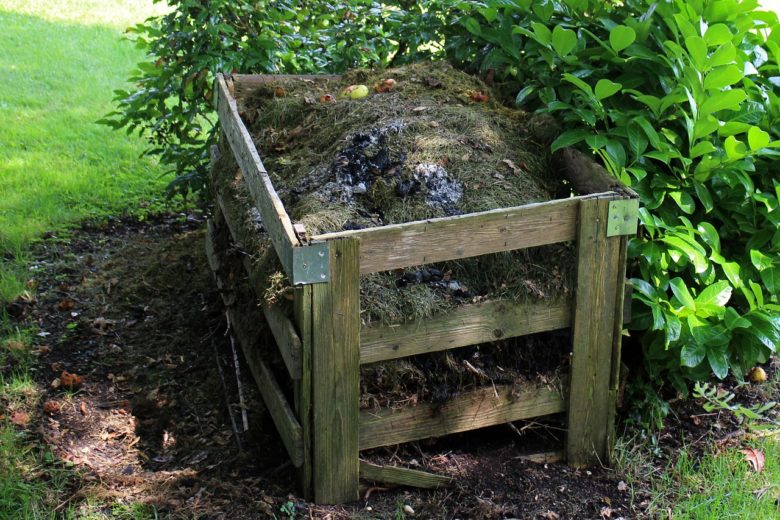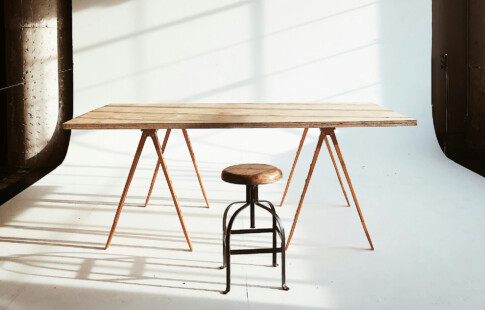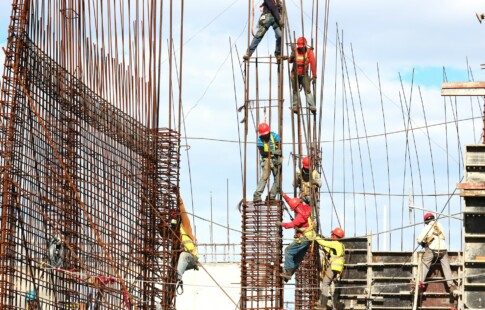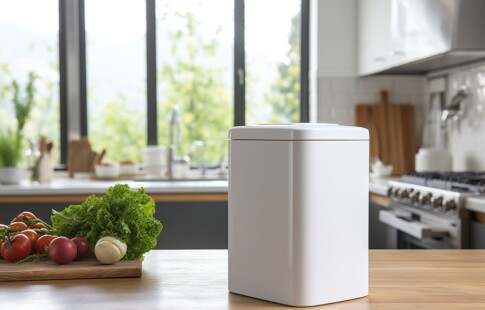
7 Composting Facts for Composting Awareness Week
We are reader-supported. When you buy through links on our site, we may earn affiliate commission.
International Composting Awareness Week (ICAW) occurs during the first full week of May each year and educates the compost industry and individuals about the benefits of composting. ICAW started in 1995 in Canada and has a different theme each year, such as “Cool the Climate – Compost” for 2019.The Composting Council, who heads up ICAW, works with businesses across the globe to create composting events for communities, such as workshops, compost give-away days and lectures from gardening experts. If you’ve been thinking about starting your own compost pile, May is the perfect time to get started. Begin by learning a few basic composting facts before moving into more aggressive sustainability approaches.
7 Essential Composting Facts
1. Know What to Compost
One of the most basic lessons in composting is what you can throw in your compost pile or bin and what you can’t. Remember you put compost on the soil around your home, which will then drain into local waters and impact wildlife. If you use compost for your homegrown vegetables, what you put in your compost pile also impacts your health. Don’t put anything in your compost pile that has pesticides or won’t disintegrate — think organic and natural.
Do Use:
- Grass clippings (if you haven’t treated your yard with chemicals)
- Dead leaves
- Fruit scraps such as banana peels
- Coffee grounds
- Eggshells
- Vegetable scraps
- Appropriate manure (not dog, cat or human)
- Plastic waste
- Cat or dog feces
- Diseased plants
- Meat (including fish)
- Paper with coating
- Bones
- Ashes from charcoal
If in doubt, consult your local master gardener through your state’s chapter of the American Horticultural Society.
2. Find the Right Spot
Your compost pile works best in a location where you can get to it easily to add material, turn it over, add water and watch other factors. However, you don’t want it so close to your house that it attracts pests or adds smells you don’t want near your back door. You need a dry, shady area where you can transport water easily. Another option is building or investing in a compost bin. Keep in mind the material you use, as some plastics emit gases you may not want in your organic gardening materials.
3. Layer Your Content
A good composting fact is to layer things into the mixture like it is lasagna. Stack green material, then brown, then white or something else. For example, lay down a layer of grass clippings, then dead leaves and finally fruit and veggie scraps. Chop or break any large pieces into small bits. If you add leaves, break them apart, for example. For the composting process to happen, you need organic matter, water, oxygen and bacteria.
You will need to turn your pile frequently for these factors to heat your pile and break down the matter in it. Experts recommend waiting about two weeks and then turning the pile. Two weeks allows the center of the compost to heat and decompose. Turning frequently speeds up decomposition.
4. Achieve the Perfect Temperature
A compost pile should ideally get to between 120 to 170 degrees Fahrenheit — just use a thermometer stuck in the middle to see how hot it is. Keep in mind that an older pile may not be hot at all as it is the decomposition process which creates the heat. If you have an ongoing pile to which you add fresh material and turn frequently, it may not heat up much unless you add plenty of fresh material.
Try adding moisture and turning if your pile still isn’t heating up, try adding moisture and turning. If it doesn’t get hot after a few more days, add some nitrogen and wait a couple more days. Composting is a matter of building the perfect recipe. Once you get it going, it should cook properly and supply you with plenty of rich material for gardening. Use natural materials to add nitrogen richness. For example, combine equal part dead leaves, grass clippings and coffee grounds. Coffee grounds have 20 parts of nitrogen to one part carbon, making them the perfect choice to add nitrogen to your mixture.
5. Reduce Your Waste
Composting reduces your carbon footprint because less waste goes in your trash can. It also naturally forces you to separate materials and stay conscious about recycling. Anything organic goes into a bin to take out to the compost pile, while anything plastic goes in a bin to go to recycling. Thus, the only items heading to the trash are those that truly can’t be recycled or reused.
On top of reducing the amount of waste you produce, you’ll do the environment a favor because it will require less fuel for the trash trucks to pick up and take away your waste. If everyone worked together to reduce waste, imagine what a huge impact it would have on the local environment.
6. Improve Your Soil
One part of living a greener lifestyle is producing your own garden of vegetables, herbs and fruits. With compost, your soil grows richer and plants thrive. You’ll be able to grow enough food to support your own family and perhaps even give some away. Because you’re cautious about what you put in your compost pile and keeping things as organic as possible, the foods you grow will be richer in nutrients than anything you can purchase from a mass production farmer through your local grocery store.
7. Make It a Family Affair
Composting is easy. Teach the kids some composting facts and put them in charge of separating materials for the compost bin and let everyone benefit from the end result by gardening and harvesting the crops together. If you don’t have space outside for a compost bin, you can create a special container and compost indoors. Even someone living in a small apartment without any land could compost indoors and have a few container plants on the balcony where they use the compost and grow a few tomatoes or other edibles.
Reduce Greenhouse Gases
Composting helps reduce greenhouse gases. Landfills are one of the biggest culprits in creating methane gas. However, when people compost more of their organic material, they keep it out of landfills and keep the methane gas at bay as they turn their pile and reduce methane to a negligible amount. Starting your own compost pile is good for the environment, good for your garden and good for your environmentally conscious soul.
Share on
Like what you read? Join other Environment.co readers!
Get the latest updates on our planet by subscribing to the Environment.co newsletter!
About the author
Jane Marsh
Starting from an early age, Jane Marsh loved all animals and became a budding environmentalist. Now, Jane works as the Editor-in-Chief of Environment.co where she covers topics related to climate policy, renewable energy, the food industry, and more.





